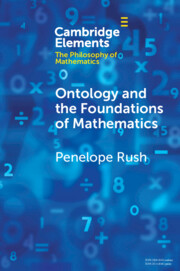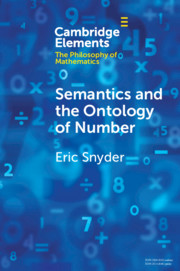Ontology and the Foundations of Mathematics
This Element looks at the problem of inter-translation between mathematical realism and anti-realism and argues that so far as realism is inter-translatable with anti-realism, there is a burden on the realist to show how her posited reality differs from that of the anti-realist. It also argues that an effective defence of just such a difference needs a commitment to the independence of mathematical reality, which in turn involves a commitment to the ontological access problem – the problem of how knowable mathematical truths are identifiable with a reality independent of us as knowers. Specifically, if the only access problem acknowledged is the epistemological problem – i.e. the problem of how we come to know mathematical truths – then nothing is gained by the realist notion of an independent reality and in effect, nothing distinguishes realism from anti-realism in mathematics.
Reviews & endorsements
'Ontology and the Foundations of Mathematics is extremely thought-provoking and will surely spur additional reading of the Element series. … Rush's tenacity in pressing [ontological access problem] questions about the relevance of objecthood and independence is unique, unsettling, unrelenting, and effective.' Nicholas Danne, Metascience
Product details
February 2022Paperback
9781108716932
75 pages
229 × 150 × 4 mm
0.09kg
Available
Table of Contents
- 1. What are we Talking about?
- 2. Inter-translatability
- 3. Two Access Problems
- 4. Independence
- 5. Justification.



